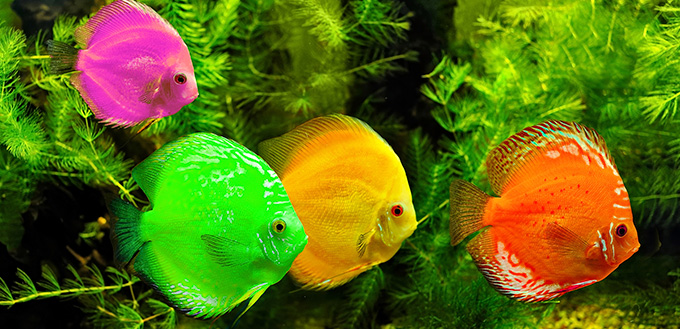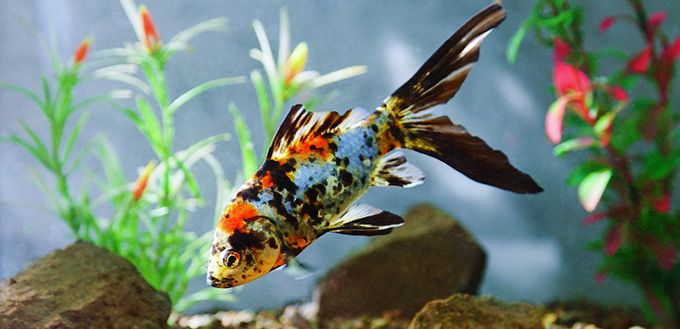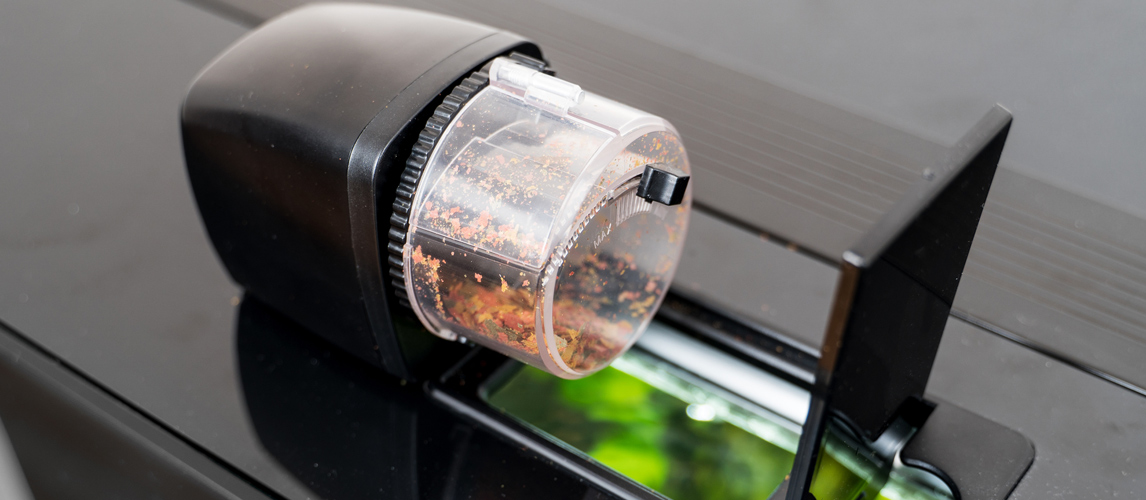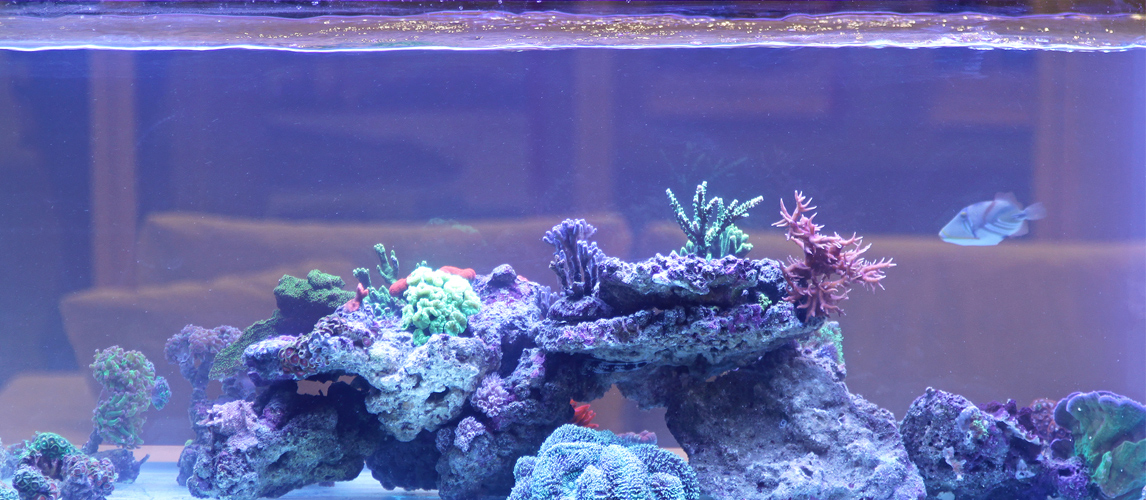I think most people will agree – sleeping is one of the most important activities in our lives. We plan a lot of our activities around trying to get enough sleep to function, and our day can easily be ruined by a bad night’s sleep before it has even begun. But is this the same for all our pets? We know our dogs and cats need to sleep, but do our fish? We want the best for all our pets, and all animals need to rest, so how do we know our fish are healthily sleeping? And what should we be doing to help them?

Sleeping With The Fishes
Yes. Fish do sleep. This is the quick and easy answer to the question. A more nuanced answer is that all pet fish need to sleep. There are breeds of deep-water fish that may not need to sleep, and it is theorized that this is because they have evolved not to need sleep as they gather less information that needs to be processed.
This brings us to why your fish needs to sleep. It is generally accepted that most, if not all, animals sleep for similar reasons – restoration, health and energy. Sleep allows animals to process what they have observed and restore their brain power. This is essential for their immune systems, and without sleep fish will struggle to fight infections and will have much slower metabolisms.
The amount of sleep that a fish needs can vary between breeds and personalities. Some will prefer to nap on and off over a period of time, while others will sleep in one long burst. Some people mistakenly think their fish are tired because they see them yawn. While fish might look like they are yawning, this isn’t because they are tired. They do this when they need to clear their gills using water.
How Do Fish Sleep In A Tank
Now that you know that your fish do sleep, you might be wondering what a healthy sleeping fish looks like. If you want to catch a glimpse of a sleeping fish for yourself, try turning off all the lights and keeping the environment very quiet. After a while, you should carefully and silently check on them using a very low light. Don’t shine the light directly on them or you may wake them up.
It can be difficult to determine whether you are looking at a sleeping fish. Here are some facts about how fish sleep that will help you identify when it happens:
- Sleeping fish do not close their eyes because they do not have eyelids
- They do not lie down, but become less active
- They will appear to stay in one place, but will continue to move occasionally to keep themselves stable and to keep oxygen circulating into the gills
- Some fish, like sharks, continue to swim slowly to keep oxygen circulating. Generally, the smaller the fish, the less drastic the movement they have to do to keep oxygen flowing
- They may be an inch or so from the bottom of the tank and some owners have suggested that it looks like they are hovering
- Their color is likely to fade as a means of protecting themselves from predators
- Fish don’t enter into deep REM sleep, probably because their brains are less complex than ours. This means they do not dream
 Let Sleeping Fish Lie
Let Sleeping Fish Lie
As you might imagine, sleep is just as important to fish as it is to us, so you will want to ensure that they are getting a sufficient amount. In order to do this, it isn’t enough just to wonder about why and how particular breeds of fish sleep, it is also important to ask, for example, ‘when do betta fish sleep?’.
Fish can vary between being diurnal, nocturnal and crepuscular. This means they are most active during the day, the night, or at dusk and dawn. To answer our question above, betta fish and most other common pet breeds, like goldfish, are diurnal. They are more likely to be awake when there is light and to sleep when it is dark.
If you think your fish may be nocturnal, look out for these traits that they have evolved over the centuries to help them stay awake and alive at night time:
- Slower, more cautious swimming
- Larger eyes
- More solitary behavior
- Shyness, such as hiding during the day
- Red or yellowish brown in color as these colors are absorbed by water and become indistinguishable when light levels drop
It is important to be considerate of your fish’s natural sleeping routine as you will need to provide them with a quiet environment if they are going to get enough sleep. If you have a nocturnal pet, you will want to put them in a room that does not have much activity during the day, such as a bedroom, to avoid disrupting them.
Regardless of whether they are diurnal or nocturnal, your fish will benefit from structure and routine when it comes to light. You may want to use a tank light to make a clear routine. You can simply keep it on for 12 hours, and then switch it off for 12 hours. Never leave the light on for a full 24 hours as this will disrupt their sleep and could risk their health.
If your fish is not getting enough darkness, they will hid in plants to to try and get the darkness they need to sleep. If you see your fish regularly hiding to get some sleep, look at the position of their tank at night time to see if there are any problematic lights, such as a street lamp that is shining directly at the tank.
Some fish hide when they sleep independently of whether they need darkness of not, so it is also a good idea to offer hiding spots for your fish, particularly if you have a betta fish or an exotic breed found in coral reefs. They are used to hiding in the reef when they sleep to protect themselves from predators.
Healthy Fish Behavior
A common question that is asked about sleeping fish is ‘Do fish sleep upside down?’. I can understand why owners may think that an upside down fish is sleeping because we humans sleep on our backs. However, sleeping fish do not turn upside down or sideways. They stay upright, but may slightly angle themselves downwards so that their faces are a little lower than their tail.
If your fish has rotated at all, or if they are lying at the bottom of their tank, they are probably ill. The most likely diagnosis is that there is a problem with their swim bladder. This organ is what allows them to stay floating. Their swim bladder may be suffering from an infection or there may be a high concentration of nitrate or ammonia in the water. If you are concerned, you should call your vet.
Sources:
- Laurie Hess, DVM, DABVP, Do Goldfish Sleep?, PetMD
- Do Fish Sleep?, Live Science


 Let Sleeping Fish Lie
Let Sleeping Fish Lie



